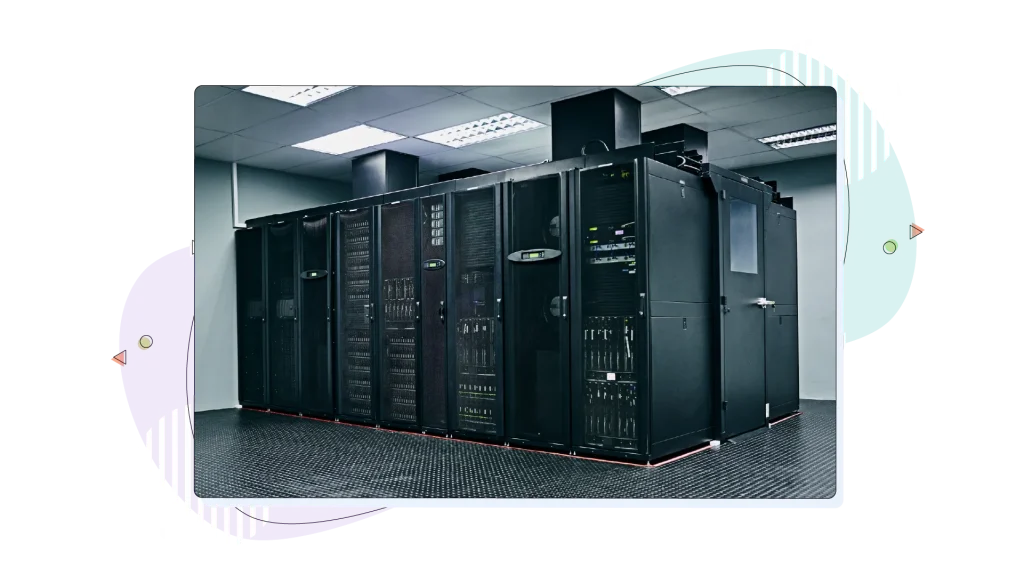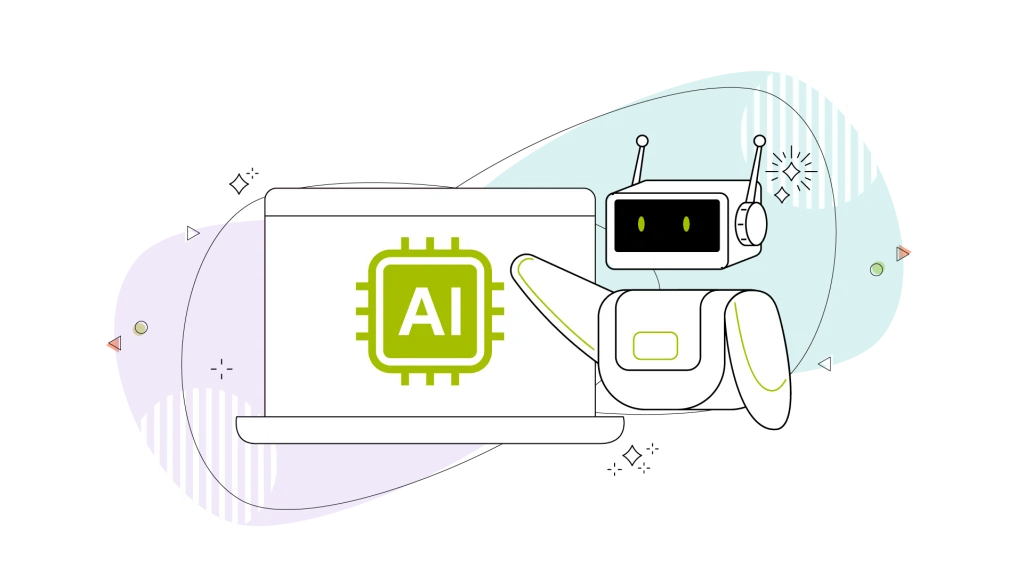Your application is taking off. More users, more features… but now it’s slowing down. Not from you, but from the server side. When an application’s user base and complexity start to increase, the hosting environment becomes a deciding factor for its success.
No one wants a sluggish, unreliable, and unresponsive platform that comes with frequent downtime; it’s frustrating and damaging to your reputation.
The solution is often a move away from a basic web server to a more powerful environment: application hosting on dedicated servers.
We’re here to help you understand this powerful choice. We’ll walk you through what dedicated server hosting is, why it’s a game-changer for serious projects and your online business, and what types of applications benefit the most from it.
- What Is Application Hosting on a Dedicated Server?
- Why Host Applications on a Dedicated Server Provider?
- From eCommerce to SaaS: High-Impact Applications for Dedicated Servers
- Beyond the Basics: More Powerful Dedicated Server Use Cases
- Is a Dedicated Server the Right Choice for Your Application?

What Is Application Hosting on a Dedicated Server?
Hosting your application on a dedicated server means your project gets an entire server (an entire physical server) all to itself.
The best way to think about it is like owning a house instead of renting a flat. In an apartment building, you share the structure, plumbing, and maybe even a parking lot. With a house, it’s all yours. You don’t share walls, a driveway, or a backyard—all the physical resources are 100% yours to use as you see fit.
That’s the core of dedicated hosting.
This is the opposite of shared hosting or simple web hosting, where your application’s files are placed on the same server alongside hundreds of other websites. In that environment, everyone splits the server’s resources, like its Central Processing Unit (CPU), memory (RAM), and bandwidth. This can lead to performance issues if another website on your shared server suddenly gets a lot of traffic.
With a dedicated server, that problem disappears completely.
While dedicated servers offer some outstanding benefits, VPS hosting (or a virtual private server) offers a middle ground; it still involves sharing the same physical server.

Why Host Applications on a Dedicated Server Provider?
When your application is your top priority, you need a hosting solution that delivers. The dedicated server benefits are clear when you need power and control.
1. Unmatched Performance & Speed
With dedicated servers, 100% of the server’s resources are allocated to your application. All the processing power from the server’s CPU, memory, and bandwidth capacity is at your disposal around the clock, offering high performance for every resource-intensive application.
This directly results in faster load times, smoother operations, and a much better user experience, especially on high-traffic websites.
There are no “noisy neighbours”—other websites on the same server that consume resources and slow your application down. The power is all yours, all the time.
2. Superior Security & Complete Control
Because your server environment is completely isolated from others, your application is protected from security vulnerabilities that could spread across a shared platform. You have a private environment that isn’t affected by the actions of other users.
Furthermore, you get full administrative (root) access, which allows you to install tailor-made security software and configure firewalls to your exact specifications.
This level of security is a must-have for applications that handle sensitive information, such as eCommerce stores processing payments or business software containing private customer data.
3. Complete Customization & Flexibility
A dedicated server gives you the freedom to create the perfect hosting environment for your application. You’re not stuck with standard server settings.
You can choose your preferred operating system (OS), whether it’s a specific distribution of Linux or Windows Server. You can also install any software, framework, or application you need without the restrictions typically found in shared environments.
This level of control is fundamental for developers building applications with unique or demanding technical requirements.
4. High Uptime & Dependability
When your application is your business, you can’t afford for it to go down. On a dedicated server, your application’s availability won’t be affected by another website’s traffic surge or a resource-heavy script that you have no control over.
Since the hardware is dedicated to you, the robust performance is consistent and predictable. This provides a trustworthy service for your users and helps build confidence in your brand.
When users know your application works flawlessly every time they visit, they’re more likely to return.

From eCommerce to SaaS: High-Impact Applications for Dedicated Servers
Theory is one thing; real-world application is another. A dedicated server isn’t just a list of server specifications; it’s a solution to specific operational challenges.
Here are some common use cases where a dedicated server is not just a preference, but a fundamental requirement for success.
High-Traffic eCommerce & Retail Platforms
- The scenario: You’re running a Magento 2, Sylius, or a scaled-up WooCommerce store with a catalogue of over 10,000 products. Your platform experiences sharp traffic spikes during marketing campaigns and seasonal sales events like Black Friday.
- The technical challenge: Standard hosting environments crumble under concurrent user load. Database queries for inventory checks, user sessions, and dynamic pricing become slow. The checkout process, a multi-step, database-intensive operation, can fail, leading to abandoned carts and lost revenue.
The Dedicated Server Solution:
- Database dominance: You can dedicate an entire server to your MySQL or MariaDB database, configured with a large innodb_buffer_pool_size that keeps most of the product catalogue and customer data in RAM. With dedicated NVMe SSDs in a RAID 10 configuration, database writes (like processing an order) are fast and redundant.
- Advanced caching implementation: You gain the control to set up a multi-layer caching system. Use Varnish as a reverse proxy to serve cached pages to anonymous users, and Redis to handle session storage and cache complex database query results. This offloads immense pressure from the application server.
- Security and compliance: A dedicated server’s isolated environment is a cornerstone for meeting PCI DSS (Payment Card Industry Data Security Standard) requirements. You have complete control over firewall rules, access logs, and security hardening, which is mandatory when handling credit card information.
Multi-Tenant SaaS (Software-as-a-Service) Applications
- The scenario: You’ve built a SaaS platform—for example, a CRM, a project management tool, or marketing automation software. The application serves hundreds of different businesses (tenants) from a single codebase.
- The technical challenge: The “noisy neighbour” problem is your biggest enemy. One tenant importing a large dataset or running a complex report can consume all the shared resources, degrading performance for every other customer. Data isolation is also a critical security concern.
The Dedicated Server Solution:
- Guaranteed performance SLOs: With all the server’s CPU cores and RAM at your disposal, you can confidently offer and meet Service Level Objectives (SLOs) for application performance to your clients.
- Architectural flexibility: You have the power to properly architect your multi-tenant database. Whether you choose a single database with a tenant_id column or a database-per-tenant model, the dedicated hardware ensures there is no I/O contention between tenants.
- Scalable infrastructure: This setup provides a clear path for expansion. As your user base increases, you can move from a single, powerful dedicated server to a multi-server cluster: one server for the application, another for the database, and others for background job processing and caching.
Mobile App Backends & API Gateways
- The scenario: Your team manages the backend for a popular mobile application that handles thousands of requests per minute. The app relies on a REST or GraphQL API for everything from user authentication to fetching data and processing user-generated content.
- The technical challenge: High latency is disastrous for mobile apps. A delay of even a few hundred milliseconds in an API response is noticeable to the user and makes the app feel sluggish. The backend must handle a high volume of concurrent, short-lived connections from devices under variable network conditions.
The Dedicated Server Solution:
- Low-latency API responses: Uncontested access to CPU and the network stack means your API, built on a framework like Node.js, Go, or Laravel, can process incoming requests and respond with minimal delay.
- Optimized network stack: You can tune the server’s kernel parameters (sysctl) to handle a massive number of concurrent TCP connections and optimize memory buffers for your specific API traffic patterns—a level of control impossible on shared platforms.
- Dedicated background processing: Mobile app backends often need to run background jobs, for example, sending push notifications, processing images, or generating reports. On your own dedicated server, you can run a dedicated queue and worker system (like Sidekiq or Celery) that uses CPU resources without interfering with the performance of the main API.

Beyond the Basics: More Powerful Dedicated Server Use Cases
The possibilities don’t stop there. Dedicated servers are the foundation for a wide range of powerful applications, from gaming and machine learning (with proper server configurations) to reselling web hosting as a web agency.
Here are a few more examples:
- Online private gaming servers: Hosting multiplayer games like Minecraft, Valheim, Factorio, DayZ, or Counter-Strike requires low latency and high CPU power to provide a smooth, lag-free experience for players. A dedicated server offers you the raw performance and control needed to run a popular game world and all of its mechanics and economy.
- Big data and machine learning: Applications that process large datasets, run complex analytics, or train AI models are incredibly resource-intensive. A dedicated server can be equipped with powerful multi-core CPUs and large amounts of RAM to handle these demanding computational tasks without interruption.
- Web hosting reselling: If you’re an agency or developer managing dozens of client websites, a dedicated server allows you to create your own hosting environment. You can provide reliable performance for your clients and manage everything from a central, powerful machine.
- Private cloud and virtualization: For businesses that want the flexibility of the cloud with the security of a private environment, a dedicated server is the perfect starting point. You can use virtualization software (like Proxmox or VMware ESXi) to create and manage your own virtual machines for various company needs.

Is a Dedicated Server the Right Choice for Your Application?
It all comes down to your priorities. A dedicated server is the premier hosting solution when performance, security, and complete control are at the top of your list.
If your application is central to your business, serves an expanding user base, or handles sensitive data from customers, then moving to a dedicated server is a logical and powerful step forward. You’re not just buying more resources; you’re investing in stability and peace of mind for your project.
We encourage you to assess your application’s needs today and think about where you see it going in the future. While other hosting types are great for getting started, a dedicated server provides a solid foundation for long-term expansion and success.
It’s the choice you make when you’re serious about your application’s future.
FREQUENTLY ASKED QUESTIONS
What is the point of a dedicated server?
The point of a dedicated server is to give your website or application its own exclusive, private home on the internet. Think of it like owning a house instead of renting an apartment.
All the resources (processing power (CPU), memory (RAM), storage, and bandwidth) are 100% yours and are not shared with anyone else. This gives you maximum performance, security, and the freedom to customize the server environment exactly how you need it.
What is the main advantage of using a dedicated server for web hosting?
The main advantage is performance. Because you’re not sharing resources with any other users, your application can use the full power of the server’s hardware. This results in significantly faster loading times, a smoother experience for your visitors, and the ability to handle high levels of traffic without slowing down.
While you also get major benefits in security and control, the immediate and powerful impact on speed is the primary reason businesses choose a dedicated server.
What is the difference between shared hosting and dedicated hosting?
The key difference is how server resources are allocated.
- Shared hosting: This is like living in an apartment building. You share the building’s resources (like electricity and water) with many other tenants. It’s a very cost-effective way to get started, perfect for personal blogs, portfolios, and small business websites.
- Dedicated hosting: This is like owning your own house. All the resources are exclusively yours. You have complete control over the entire space. It’s the ideal solution for high-traffic websites, large eCommerce stores, and important business applications that need top-tier performance and security.
What are the disadvantages of dedicated hosting?
There are two main things to consider with dedicated hosting providers:
- Cost: Because you get an entire server to yourself, it’s a bigger financial investment than shared or VPS hosting. The price reflects the power, privacy, and performance you receive.
- Technical responsibility: With full control comes the responsibility of managing the server. If you choose an unmanaged plan, you are in charge of server management, software updates, security patches, and server configurations. However, this is why we offer Managed Dedicated Servers. With a managed plan, our team of experts handles the technical management for you, so you can focus on your application while we take care of the server.




